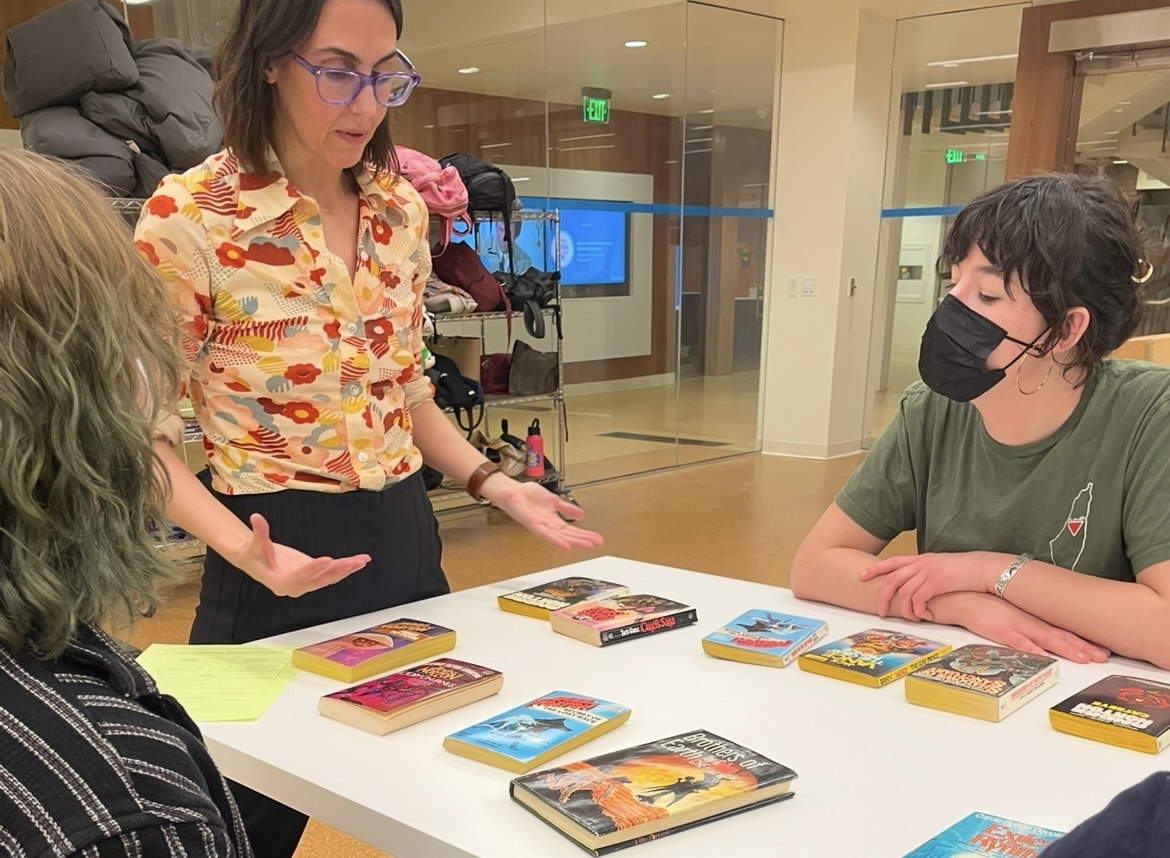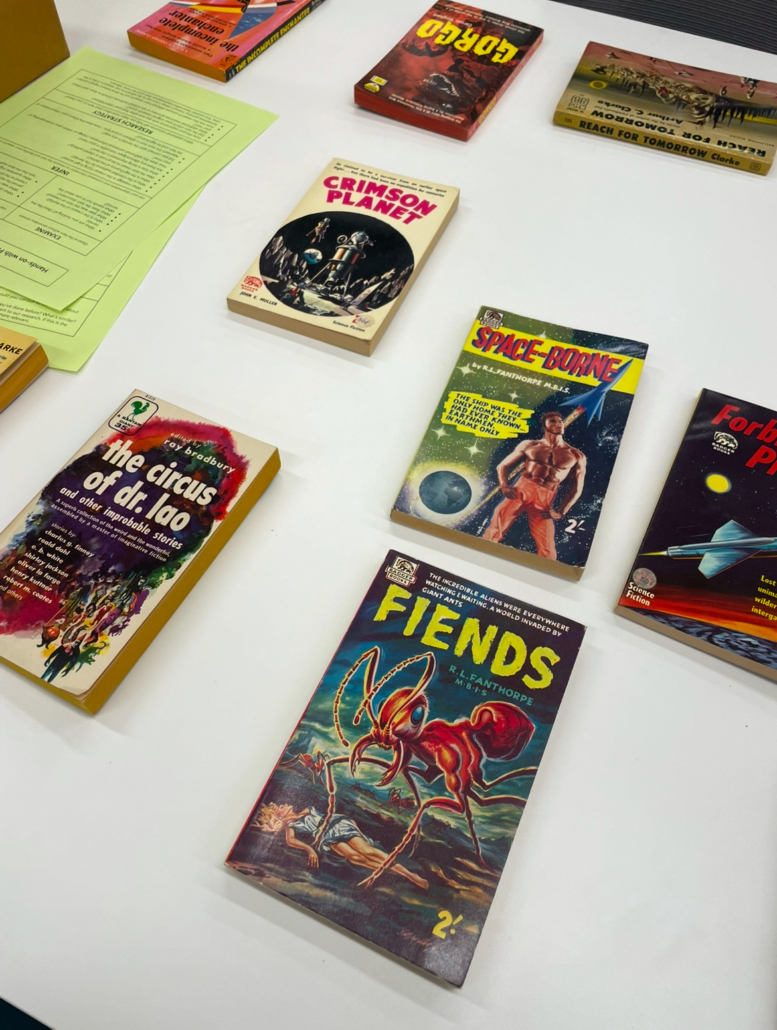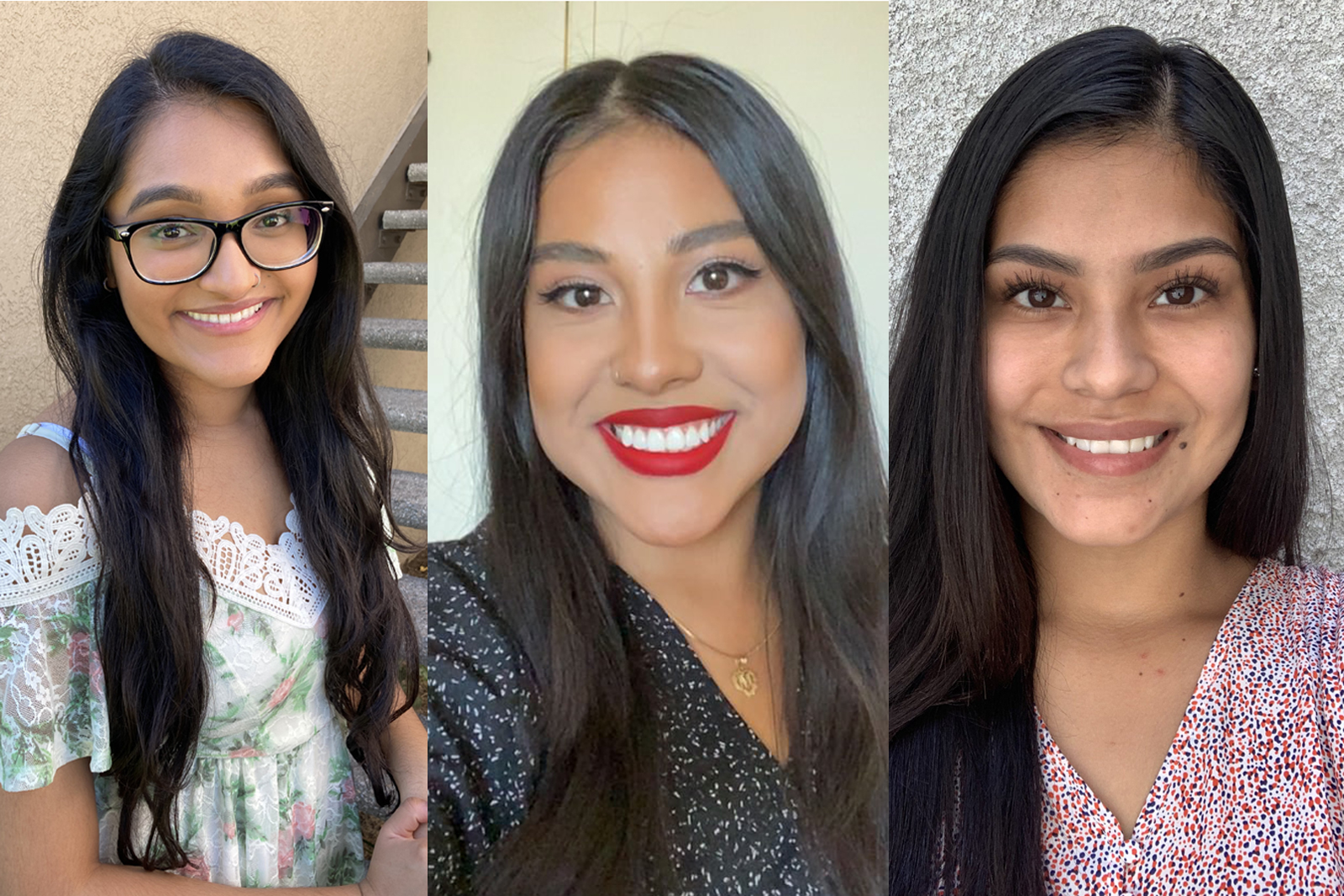UCLA students contemplated revolution in science fiction literature during class visit to UCLA Library Special Collections

News
Willa Needham
Los Angeles in 2025: ravaged by fires, divided by economic and racial inequalities and governed by an authoritarian leader promising to “Make America Great Again.” This is not a description of the current moment– it’s the setting of the 1993 novel “Parable of the Sower” by renowned afrofuturist Octavia Butler.
UCLA students in the labor studies class “Revolutionary Fantasies: Inequality and Protest in Contemporary Science Fiction” read an excerpt from the book at the beginning of winter quarter in January. Their discussion of the text moved online that week due to the uncontained fires near campus.
The similarities between the present day and a 32-year-old novel might seem eerie to some, but for Engy Meglah, a biology major who enrolled in the course because of her general interest in science fiction, the recent disasters in L.A. weren’t exactly surprising.
“Extreme weather events have been predicted and warned against by climate scientists for decades,” she said. While these real-world projections might do little to change the minds or behavior of skeptics, Engy pointed out that parallel narratives in works of science fiction seem to “really stick with people.”
So why do visions of dystopian futures resonate differently when they appear in fictional stories? Professor Loretta Gaffney, the instructor of the course for two consecutive years, has an idea:
“Science fiction is exciting– often the stories feature adventure, battle, rebellion and protest. In the context of climate change, science fiction stories not only imagine a bleak future, but tell a story about how humans might grapple with that future. Reading these ‘warnings’ is more than just a prediction or heads up for humans; it also helps us imagine how we might deal with various apocalyptic futures in ethical and principled ways.”
The class frames science fiction as a storytelling genre in which contemporary issues can be examined through alternate worlds. Offered by the UCLA Labor Studies program, the coursework has a specific focus on analyzing how diverse authors depict systems of inequality being disrupted by forms of revolution, protest and rebellion.
Science fiction has entertained readers and challenged them to think beyond the status-quo, or not, for centuries. Students of “Revolutionary Fantasies” glimpsed how the genre has changed over time during a class visit to UCLA Library Special Collections (LSC). In an activity led by Jet Jacobs, head of public services, outreach and community engagement and interim assistant director of LSC, students got their hands on twentieth century science fiction novels from two archival collections stewarded by UCLA Library.


Image on left: Students review paperback science fiction novels from the 20th century
Image on right: Pulp novels that form part of the collection.
The Library’s Distinctive Collections classroom filled with chatter as students walked around tables displaying the novels, stopping to page through the ones that interested them. The classmates identified familiar classics like “Fahrenheit 451” and “The Left Hand of Darkness” alongside lesser-known twentieth century pulp novels whose covers featured attractive women in peril and ethnically anthropomorphized aliens.
In a lively discussion, students agreed that the pulp novels evoked negative social and cultural stereotypes that were widely accepted at the time and still persist today. They noted that these books contrasted the progressive contemporary readings assigned in their labor studies course.
Jacobs encouraged the class to consider how narratives—both harmful and uplifting—are distributed and accessed by the public. The pulp novels had once been mass printed and sold for low prices but now were accessible in a different way being stored and preserved in Library Special Collections.
Jacobs acknowledged that engaging with archival materials might seem daunting at first, but reassured students that LSC staff are eager to help them navigate the process. She emphasized that LSC’s collections are available to the public. “We don’t limit collections use to strictly research– we encourage curiosity,” she added, highlighting that trips to the archive don’t always have to be related to academic pursuits.
After the activity, Chrystina Torres, a labor studies and political science double major, reflected that interacting with the archived novels was “fun and exciting.” “I felt like I was looking back at a piece of history,” she said.
Labor studies is focused on addressing urgent community challenges like racial and economic injustice, yet it remains grounded in history. As Professor Gaffney reminds, “History is not just the past, it’s what we are creating at the present moment. Science fiction is better understood and mobilized toward social change and social justice if we can trace its connection to the past and the present. By making these connections, we “read” our present day circumstances through stories about future or alternate realities.”
Media Contact: Willa Needham willaneedham@ucla.edu.
This story was originally published on UCLA’s Institute for Research on Labor and Employment website, here.
UCLA Labor Studies, housed in UCLA’s Division of Social Sciences, is the first major of its kind at the University of California. Renowned for its commitment to engaged student learning in community worker settings, rigorous hands-on research and courses that explore some of the most pressing labor and social justice issues, the program became a major in 2019 after being established as a minor in 2014.

